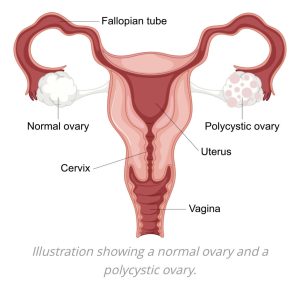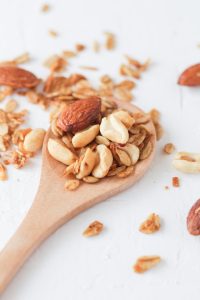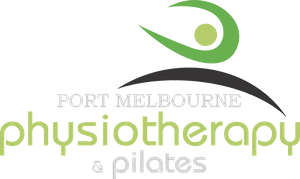What is PCOS?
PCOS is an imbalance of reproductive hormones. The hormonal imbalance creates problems in the ovaries. The ovaries make the egg that is released each month as part of a healthy menstrual cycle. With PCOS, the egg may not develop as it should or it may not be released during ovulation as it should be. Research in this area has found links between PCOS and other health problems, including obesity, insulin resistance, diabetes, high blood pressure, depression and anxiety.
PCOS affects 12-18% of women of reproductive age and up to 21% in some high-risk groups,
such as Indigenous women (Jean Hailles). 70% of women with the condition are estimated to remain undiagnosed.
Common symptoms of PCOS include:
- Irregular menstrual cycles and delays in ovulation.
- Amenorrhoea (absence of periods).
- Acne.
- Excessive facial or body hair growth (or both).
- Increased androgens (a group of sex hormones).
- Scalp hair loss.
- Delays to conceiving (difficulty in becoming pregnant).
- Mood changes – including anxiety and depression.
- Difficult losing weight.
- Insulin resistance.
- Sleep apnoea.

Image credit: https://www.healthdirect.gov.au/polycystic-ovarian-syndrome-pcos
Having PCOS may also increase the risk of developing conditions such as type 2 diabetes, cardiovascular disease and endometrial cancer. Unfortunately, there is no cure for PCOS, however it can be managed by through lifestyle interventions and medications.
Research has not definitively identified a singular “optimal” dietary regimen for effectively addressing PCOS. The key lies in discovering the right approach tailored to your unique needs, guided by a healthcare expert.
Below are various dietary patterns that could potentially assist in PCOS management.
However, these should be customised to suit each persons specific circumstances in collaboration with a healthcare provider, aligning with your body, lifestyle, and requirements.
- Low GI Carbohydrates:
Low GI carbohydrate foods are those that slowly release glucose into your bloodstream and prevent your blood sugar from spiking too high. This has a beneficial effect on Insulin. Low GI carbohydrates also help you to stay fuller for longer and can therefore help with weight reduction. Low GI foods include wholegrains such as brown rice, multigrain bread, wholemeal pasta, some fruits such as berries as well as nuts/seeds, beans and legumes.

Simple swaps include:
- Swapping white bread for multigrain or sourdough.
- Swapping Jasmine rice for Basmati rice or brown rice.
- Swapping white crackers (such as salada, cruskit) to a grainy cracker (vita-weat).
Alongside a low GI diet, modifying your carbohydrate intake may also be beneficial in controlling blood sugar levels. Melissa can assist with creating a modified carbohydrate diet plan to meet your requirements.
2. Anti-inflammatory Diet
Research shows that chronic inflammation may play a role in PCOS. Many women with
PCOS are found to have higher levels of inflammatory markers. An anti inflammatory diet may assist with managing hormone levels, reducing insulin resistance and lowering the risk of developing cardiovascular diseases.
Anti-inflammatory foods include:
- Berries (strawberries, blackberries, blueberries, raspberries).
- Cruciferous vegetables (broccoli, kale, brussel sprouts).
- Green tea.
- Extra Virgin Olive oil and other healthy fats (nuts, fatty fish).
- Tomatoes.
- Other leafy greens.

Foods that are high in saturated and trans fats may increase levels of inflammation. It can be helpful to limit your intake of the following foods:
- Fried foods.
- Processed meats – bacon, salami, ham etc.
- Processed foods – chips, pre packed cakes/biscuits,
- Coconut oil.
- Palm oil.
- Red meat.
3. Omega 3
Omega 3 is a type of Polyunsaturated fat. The two main types of omega-3s are EPA (eicosapentaenoic acid) and DHA (docosahexaenoic acid).
Benefits of Omega 3 for PCOS:
- Omega -3 fatty acids may help improve insulin resistance, which is a common driver
and side effect of PCOS. - Can assist with reducing inflammation in the body.
- Heart Health: Omega-3s can help lower the risk of heart disease by reducing
triglyceride levels and lowering blood pressure. - Skin Health: They may contribute to healthy skin by reducing inflammation and
supporting skin barrier function.

It is important to include omega-3s in your diet through sources like fatty fish (e.g., salmon, mackerel, and sardines), flaxseeds, chia seeds, walnuts, and dietary supplements, but it’s advisable to consult with a healthcare professional before adding supplements to your routine.
4. Increasing Protein
Increasing the protein content of your diet can be beneficial for many reasons including the following:
- Weight Management: Higher protein intake can help with weight management. Protein is
more satiating than carbohydrates, so it can reduce overall calorie intake and help control
appetite. - Improving Insulin Sensitivity: PCOS is often associated with insulin resistance, which can
lead to elevated blood sugar levels and an increased risk of type 2 diabetes. A higher protein intake can improve insulin sensitivity, helping to regulate blood sugar levels and reduce the
risk of diabetes, as well as managing sugar cravings.
Opt for lean sources of protein that contain lower amounts of saturated fats such as:
- Lean skinless chicken breast.
- Fish.
- Beans and lentils.
- Tofu and tempeh.
- Eggs.
- Low fat dairy products.
- Quinoa.
Summary – Simple tips:
- Drink enough water.
- Get regular exercise.
- Increase your vegetable intake.
- Include at least 2 pieces of fruit daily.
- Include fatty fish 1-2x per week or plant based sources of omega 3 such as walnuts,
chia or flaxseeds. - Choose lean sources of protein.
If you require assistance in managing PCOS, book in a dietitian assessment with Melissa.
~ Melissa D’Elia
Accredited Practicing Dietitian
Dietetics at PMPP: https://portmelbournephysio.com.au/dietetics/
Sprout Nutrition: https://www.sprout-nutrition.com.au/

